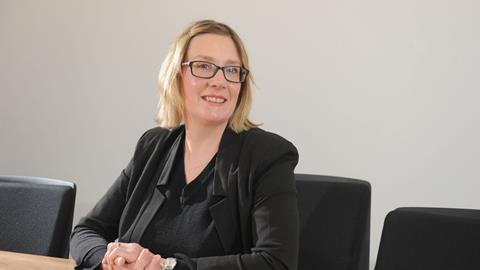Associate, Higgs & Sons, Brierley Hill, West Midlands
I think it was a combination of experiences that pushed me towards the law. I enjoyed my nursing career before returning to university after relocating.
While attending Shelter’s offices, I met some lawyers who were able to make a genuine difference to the lives of people with extremely complex problems. It struck me that helping people this way would be a good use of my skills.
Legal training gives you a base foundation of knowledge, but training can only go so far. Our profession is based on developing relationships with clients and because people are so different, you are always learning and developing responses to what and whom you are dealing with. My nursing training was good preparation as it teaches sound people management in difficult situations. As a nurse, it is commonplace to discuss life-and-death issues. This allows you to develop skills to deal with people compassionately, but also with the confidence to ensure you convey the right information to empower people to make correct decisions.
My role means I am often working with individuals who are trying to cope with the most complex life-situations. Trying to give people enough time is always a challenge. Similarly, the emotional aspects of each situation can be difficult, as can managing the expectations of people who have often reached a crisis point.
The most memorable highlight of my career is successfully making the transition from nurse to lawyer. The change allowed me to undertake a new and diverse set of challenges. One highlight at Higgs has been seeing all the hard work I have put into developing this area of practice, to the point where we now have a thriving team of four.
I do not necessarily think one ‘type’ of client is any more difficult than another. My main challenges come from those individuals whose lives have been derailed by particular circumstances. Having to deal with those factors often results in people who seem difficult simply because they have had to struggle with issues without proper support.
The principal piece of legislation that I refer to is the Mental Capacity Act and its associated guidance. It is an important piece of legislation, but there are circumstances in which it can be unnecessarily vague and gets applied in all manner of ways, sometimes wrongly.
I have been pleased to see the enhancement of the role of the Office of the Public Guardian. There has been a shift from something that seemed more akin to a tick-box service to a mechanism offering meaningful protection to those who are most vulnerable.
We are seeing an increased uptake of advanced directives (living wills), which highlights just how important end-of-life issues are becoming. I also believe there has to be a meaningful discussion of the issues surrounding so-called assisted suicide.
































No comments yet